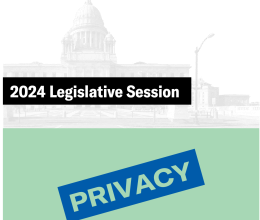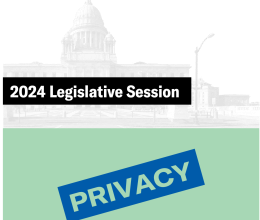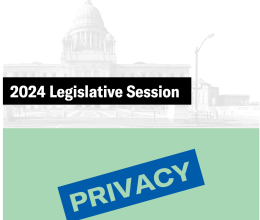The Rhode Island ACLU today sharply criticized state Attorney General Patrick Lynch for urging Congress to pass a law giving telephone companies retroactive immunity for having illegally shared telephone records with the National Security Agency as part of the government’s “war on terror.” The Congressional bill, if passed, would also pre-empt any state investigations of violations of customer’s privacy rights by the companies. This would kill a pending consumer complaint that the local ACLU filed in May 2006 with the Division of Public Utilities and Carriers against Verizon and AT&T.
In 2006, news reports described how AT&T and Verizon allegedly provided the NSA, without either customer consent or court order, the personal calling details of millions of residential phone customers. The RI ACLU’s complaint noted that the customer information provided to the NSA could “be easily matched with other databases to obtain the name and residence of each caller. This would enable the government to track virtually every phone call made by Rhode Island residential customers, including the identity of the people they called and the length of each conversation.” The complaint called the companies’ release of the data a “systematic and flagrant violation” of customers’ privacy rights and, citing state laws that the release of the information may have violated, requested the DPUC to investigate the matter.
That complaint has been stayed to await the results of court action in a California case examining many of the same issues, including phone company claims that “national security” bars investigation of the allegations of illegal activities on their part. The Congressional bill, which has been the subject of heated controversy, would shortcut judicial consideration of these claims. It would do so by requiring courts to dismiss these cases if the U.S. Attorney General merely certifies to a court, in secret, that either the phone company did not participate in surveillance activities or that it did so in reliance on a Presidential assertion that the activity was legal. The bill also bars any state investigations into the legality under state law of any warrantless spying facilitated by the phone companies. The AG’s support for the legislation came in a letter, signed by 20 other Attorneys General, that was sent to Congressional leaders last month but obtained by the ACLU today.
RI ACLU executive director Steven Brown said today: “It is unfortunate that our state Attorney General, who is entrusted with protecting the consumers of Rhode Island, has instead decided that the interests of the telecommunications industry are more important than the privacy rights of our residents. We are hopeful that Congress will reject this legislation, which is simply the Bush Administration’s latest effort to cover up their violations of the rights of Americans in the name of fighting terrorism.”
View a copy of the letter from the Attorneys General and the ACLU’s analysis of the bill’s immunity provisions.








